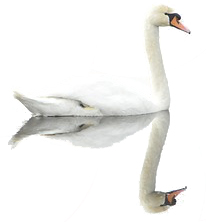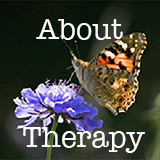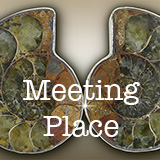Dreams
The Story of You
Little is known about what dreams are. There is no quantifiable explanation for them. However, in my years of working with my own dreams and those of clients and fellow dream students, they have proved in experience to provide profound insight to our true selves. Dreams are our truth. Their meaning may not be immediately apparent or even sensical. However, with the willingness of an open mind and the imagination to play with metaphor, The Story of You unfolds.
Mother Tongue
Dreams provide a deeper truth to our waking reality. They are our First Language. It is within Dreams that we discover the complex and often conflicting thoughts and feelings we genuinely have but maybe resist admitting. They also reveal the hints and nudges of how to really thrive. Here are the little nuggets of hidden perceptions that the personality obliterates from view. This fertile ground holds the reasons why we often do things that we do not understand. Dreams unlock the mystery of who we are.
Dreams are the tapestries of colour that ebb and flow within black-and-white. In dreamtime, we dance in the freedom of an expanded understanding of what we really feel and believe. Dreams do not censor. It is in this space we are not under the pressure of third dimensional time. Here there is ability to view situations from many angles, within sometimes paradoxical motivations. Accepting such paradoxes integrates a more balanced and aware understanding. Dreams tend to strike at the heart of the matter. They may illuminate 'false self' habits, but they are not fooled by them.
Touchstone of Character
"Dreams are the touchstones of our characters." ~ Henry David Thoreau
How would you feel if you already possessed an encyclopedia of who you are, what you truly love to do, why things get in the way of achieving them and so on? Your psyche knows all this, but it is also wise. It realises that daily social life requires a degree of compromise. And compromise is a healthy ability as long as it is done with awareness. Dreams are our conversation with the Psyche, our innermost self. For more on this, please see the Psyche page.
The language of dreams is through metaphor, images, symbols, fantasy and analogy. These are yours and yours alone with your own unique meaning. Dream dictionaries give you a common denominator which may or may not contain your meaning; you and your reflection give your dream revelation.
Dreamtime
Gallery of Meaning
Quite often people tell me they do not dream. But with a little gentle questioning, it does not take long for little flutterings of dreams to start to make themselves known. These flutterings are precious fragments into the world of intuition. For in dream time we have the freedom to make the impossible possible. We are untethered to the constraints of physical reality to create in multi-dimensions, effortlessly. This is the terrain where truth, wisdom, creativity and intuition come alive. This is the art of finding meaning.
Waking Life
In waking life, we often struggle with conflicting feelings and perceptions that do not sit comfortably together. The three-dimensional experience struggles with this lack of order. The ego demands a more black-or-white view: good or bad; happy or sad; right or wrong. A polarised view. The ego prefers a diet of snap decisions, opinionated views and dogmatism. In the sleep state, the personality steps aside to allow for deeper understanding.
Waking Life is a world governed by time. This puts an emphasis on 'doing'. In Dreamtime, this emphasis shifts from doing to being. Here we revert to our core self of 'human being'. In waking life we are more orientated to 'human doing'. When we live with a foot in both worlds, we have far greater access to sustainable satisfaction. Potential meets the Practical.
Day Dreaming
Sleep Dreaming is not so very different to Day Dreaming or the sensation of "Oh, I was miles away". Day Dreams and Fantasy Worlds are indeed a form of Dreaming. If you are interested in a deeper look but do not recall your Sleep Dreams, start with giving more attention to your Day Dreams. Listen more carefully. You may discover a theme.
New Resources
More authentic and helpful responses in life are generated from the integrated self that can embrace various perspectives at once. This takes a deeper process to achieve. A new resource becomes available where inner wisdom percolates through to the everyday. Becoming familiar with your dreams and their meanings gives you an enhanced language for understanding yourself and your interaction with others.
In dreamtime, we find an ability to tolerate the co-existence of clashing experiences. This is a sign of a mature and healthy psyche. It can span the multi-hued space between extremes. The ugly can sit with the beautiful to create a "jolie laide" (French expression for a woman whose face is attractive despite having ugly features). Here are our truths.
Types of Dreams
Day Dreams
It has been said that we Day Dream between one and two hours a day. This is when we are awake but get lost in thoughts and loosen our awareness on the here and now. This is the heart of creativity and the seat of worry. Our imagination overrides 'what is' whether for comfort or for discomfort; from ingenuity or from ignorance.
In Day Dreams we leave waking reality behind to ponder what we could or should have done. When connected to the practical, we effect change in our lives.
Redeeming Dreams
These dreams seek to compensate for problems or troubles. They can give voice to frustrations or blocked energy in daily life.
Gifted Dreams
These dreams inspire us in ways forward. They may be answers to questions, creative stimuli, highlight potential and many other such similar gifts.
Nightmares or Anxious Dreams
Anxious and frightening dreams often shed light on past, present and future fears and trauma that we have not had a chance to recognise, let alone, give expression to. Such dreams hold enormous healing if listened to and understood with patient attention.
Recurring Dreams
Recurring Dreams can signify that a message from the Psyche to ensure we take heed of something we have not yet fully understood. There is more work to do!
Lucid Dreams
Lucid Dreams are those that we realise we are in a dream. The dreamer is an active participant and takes decisions to influence outcomes.
Epic Dreams
These are Big Dreams. They have profound meaning and are experienced in sharp focus. Their impact remains with the person usually for a lifetime.
Predictive Dreams
These dreams can illustrate either personal or societal events in the future. More commonly, these are events that occur in the near future.
Archetypal Dreams
Archetypes (see Archetype Page) are primordial images and myths that illustrate personality and behaviour types. These transcend culture and are rooted in the beginning of time. All humans share archetypal traits to varying degrees.
Transpersonal Dreams
Transpersonal Dreams operate at a broader level than the individual. They can take many forms such as numinous, shamanic, telepathic and so on.
Other Dreams
These are the main examples of types of dreams. There are many others; and can be several types at once. Dreams are what they want and need to be.
"I have spent more than half a century in investigating natural symbols, and I have come to the conclusion that dreams and their symbols are not stupid and meaningless. On the contrary, dreams provide the most interesting information for those who take the trouble to understand their symbols. The results, it is true, have little to do with such worldly concerns as buying and selling. But the meaning of life is not exhaustively explained by one’s business life, nor is the deep desire of the human heart answered by a bank account. In a period of human history when all available energy is spent in the investigation of nature, very little attention is
paid to the essence of man, which is his psyche, although many researches are made into its conscious functions. But the really complex and unfamiliar part of the mind, from which symbols are produced, is still virtually unexplored. It seems almost incredible that though we receive signals from it every night, deciphering these communications seems too tedious for any but a very few people to be bothered with it. Man’s greatest instrument, his psyche, is little thought of, and it is often directly mistrusted and despised. “It’s only psychological” too often means: It is nothing."
~Carl Jung, Man and His Symbols

 Therapy with Me
Therapy with Me Meeting Place
Meeting Place Contact
Contact Frequently-Asked Questions
Frequently-Asked Questions Contact
Contact
